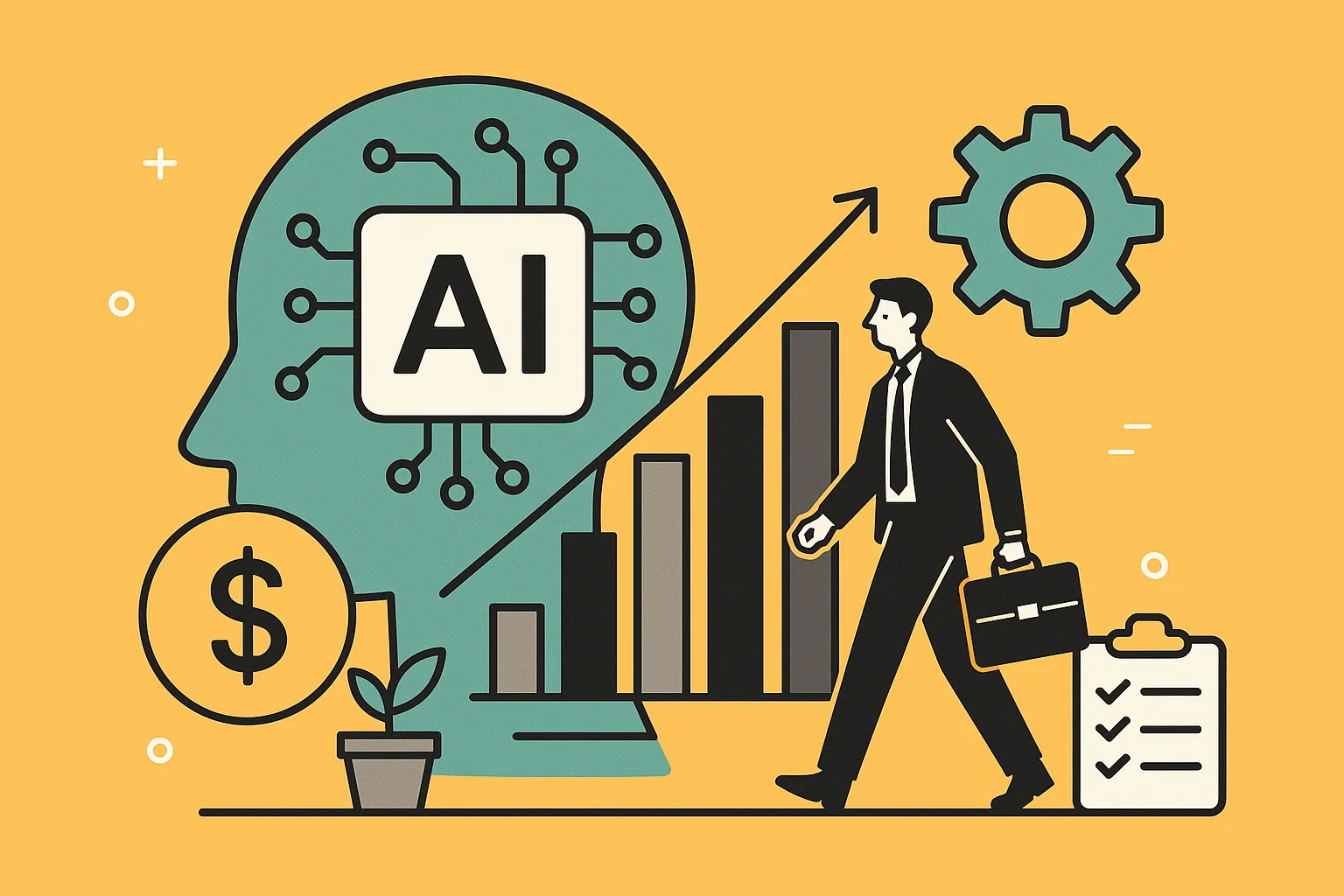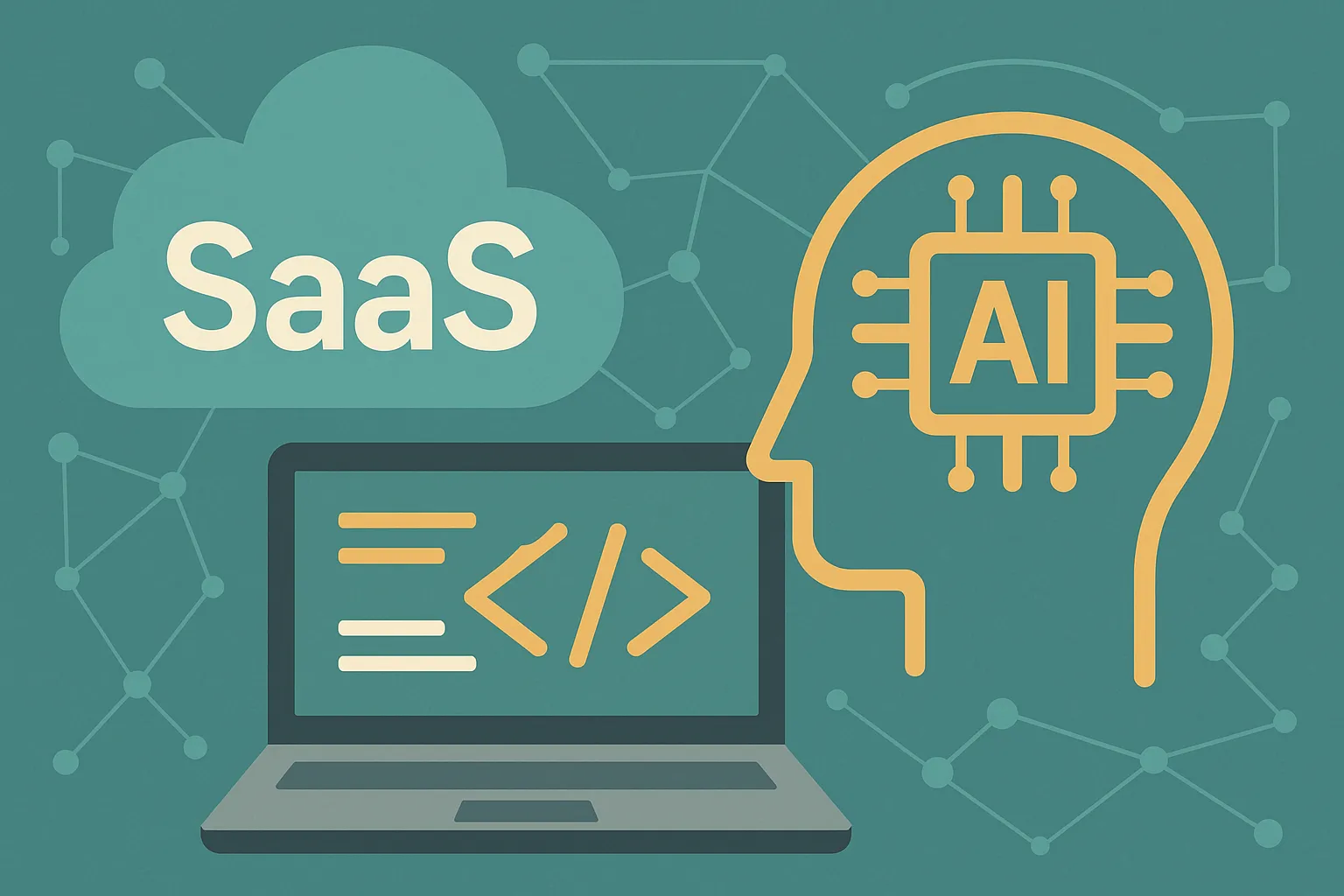Discover How to Use AI to Cut Costs in Your Company
Enhancing efficiency and reducing costs are paramount for businesses seeking sustainable growth and profitability in today's fiercely competitive economic landscape. This quest for financial resilience takes on a new urgency in the dynamic world of startups. Recent years have witnessed a slowdown in venture capital (VC) investments, making cost optimization and profitability more critical than ever before. Indeed a landmark study by (Block et al. 2019) found that profitable firms are up to 2.5 times more likely to obtain funding in the VC space. Thus, a start-up model focused on financial sustainability is becoming a necessity for continued survival in today’s business landscape.
In light of these challenges, the strategic integration of Artificial Intelligence (AI) and Machine Learning (ML) emerges as a potent tool to facilitate cost reduction and thereby profitability across various industries. Their potential to drive efficiency and streamline operations makes it a compelling ally in the quest for financial stability and sustainable growth.
AIs transformative impact on cost savings varies significantly across sectors. For instance, in healthcare, wider AI adoption is estimated to generate annual savings of 5 to 10 percent in US healthcare spending, translating to a staggering $200 billion to $360 billion per year (Sahni, et al., 2023). Similarly, machine learning applications have delivered remarkable results in the financial services industry, where businesses report cost reductions surpassing 10% upon the successful integration of ML into their business operations (NVIDIA, 2023).
Clearly, data science, and its derivatives such as AI, has an immense impact on cost efficiency across a wide range of industries. Nonetheless many businesses struggle to identify how exactly to use AIs power effectively.
In this article, we embark on a journey to explore how AI can be a catalyst for cost savings and operational excellence in your company. We delve into various avenues through which businesses can harness AI's potential, ranging from automation, chatbots, and enhanced sales processes to optimized operations and intelligent inventory management. Join us as we uncover the transformative power of data science in the pursuit of financial stability and sustainable business growth.
The Power of Automation: Streamlining Operations with AI
In the pursuit of cost reduction, automation emerges as the essential first step, and Artificial Intelligence (AI) stands as the transformative key to unlock its potential. In this section we will explore the profound impact of AI in companies through task automation, liberating resources for strategic pursuits and ensuring precision.
Automating repetitive and time-consuming tasks presents a dynamic strategy with the potential to save both time and money. As we discussed in our last article on AI automation for business, mundane yet essential responsibilities like data entry and document processing can be executed with unmatched accuracy through natural language processing (NLP), allowing your human workforce to focus on growth-driving endeavours.
However, AI-driven automation goes beyond accelerating processes; it significantly mitigates the risk of human error, sparing businesses costly rectifications. The result? Operational cost savings and a boost in efficiency that permeates your organization.
To underpin this effect, consider the inspiring journey of a small e-commerce startup, as detailed in our portfolio. By fine-tuning a large language model (LLM) on their existing customer service data, they were able to achieve remarkable outcomes. The seamless end-to-end integration of this AI chatbot to directly handle customer service requests allowed them to handle up to 50% of all customer service requests including:
- Routine inquiries or FAQs
- Purchase Order Information
- Delivery Information
- Cancellations and Return
- Complaints
This forward-thinking approach not only reclaimed valuable staff hours but also slashed customer support costs by 30% within just one year. This real-life example underscores the cost-saving potential of AI-driven automation in today's dynamic business landscape, setting the stage for sustainable growth.
Cost Reduction in Sales Processes
Chatbots and similar automations are not the only way in which AI solutions are bringing down the costs of a business. In fact, AI-powered lead generation tools can significantly enhance the efficiency of your sales team. By analyzing vast datasets of textual data and customer behaviour, AI algorithms can identify high-potential leads rapidly and with precision, allowing your sales reps to focus their efforts on prospects that are more likely to convert.
This targeted approach not only saves time but also boosts conversion rates, thereby reducing the cost per acquisition. In particular, a recent study by (Baumgartner, 2016) found that the use of AI in sales lead generation is capable of providing cost reduction of up to 60%.
Moreover, AI-powered sales automation tools can help streamline your sales processes by automating routine tasks such as email follow-ups and lead nurturing. By reducing manual intervention, your sales cycle becomes more efficient, allowing your team to close deals faster. This not only saves time but also reduces the cost associated with prolonged sales cycles.
Finally, AI can provide your sales representatives with valuable insights and personalized recommendations. Machine learning algorithms are capable of analyzingcustomer data to suggest the most relevant products or services for each client, increasing the chances of cross-selling or upselling. This not only maximizes revenue but also improves the efficiency of your sales team.
A good example of this application can be seen with Mondelēz International, the leader of the snacks industry, with legendary brands such as Milka, Oreo or Toblerone under its corporate umbrella. As Sanjay Gurbuxani, their Vice President for Global Digital Innovations, explains, the company is leveraging ML to give their salespeople the best suggested orders for each store, by utilizing its predictive capabilities based on vast amounts of data about historical purchases and other relevant factors such as common purchases within the area (Tan, 2022).
Process Optimization
A similar kind of predictive Machine Learning algorithm as used by Mondelez can be used for the optimization of different kinds of business processes, specifically within the field of supply chain management. This kind of optimization involves analyzing workflows and identifying bottlenecks or inefficiencies. By automating repetitive tasks and enhancing resource allocation, ML can help streamline your business operations. This not only improves productivity but also reduces operational costs.
AI based process organization is particularly useful in the case of managing variable costs in supply chain management. Inefficient shipping or delivery routes, underestimations on the raw materials requirements and tedious search for delivery details in large and non-unified dataset present huge bottlenecks within the supply chain industry. The result is oftentimes low profitability within supply chain and logistics heavy industries (Aghazadeh, 2004).
Fortunately ML models are capable of resolving this issue by providing scalable methods to analyse large sets of historical data, coupled with current market trends, to accurately predict and forecast optimal shipping route, raw materials requirements without the need of human interaction or verification. The speed and scale with which these models operate allow for great reductions in manual analysis and search, thereby greatly reducing the high variable labour costs traditionally associated with the industry.
For instance Ryan Petersen, CEO of Flexport, an American leading multinational corporation of the supply chain management sector and with more than 5 billion dollars in gross revenue in 2022, recently explained in a twitter post how strategic AI strategic integration is revolutionizing their operations.
Thanks to Flexports new GPT-4 based copilot, they effectively managed a 99% reduction in time spent on certain tasks by their operations team, all with a single prompt.. This kind of reduction in labour costs has a huge impact on profitability, enabling firms to build more sustainable and scalable logistics operations. Moreover, Petersen anticipates that a huge number of similar tasks in freight forwarding will be susceptible to similar AI-based automation. Flexport plans to automate an increasing number of tasks with strategic AI implementation in the next months.
.webp)

.webp)


